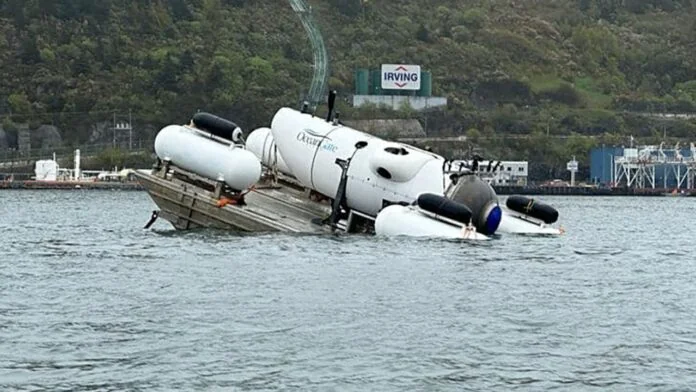In the world of deep-sea exploration, the tragic story of OceanGate’s Titan submersible stands as a stark reminder of the importance of heeding safety warnings and the risks of unbridled innovation. OceanGate CEO, Stockton Rush, was at the center of a heated email exchange with Rob McCallum, a leading deep-sea exploration expert. These emails, seen by the BBC, reveal a stonking refusal by Rush to acknowledge and act upon safety concerns raised by McCallum.
Dismissed Warnings
In these pointed exchanges, McCallum didn’t mince his words. He sternly warned Rush that he was potentially putting his clients at risk and urged him to cease using the submersible until it had obtained certification from an independent agency. Despite the stonking gravity of these assertions, Rush was far from receptive.
Responding to McCallum’s concerns, Rush retorted that he was “tired of industry players who try to use a safety argument to stop innovation”. This statement clearly illustrates his unwavering commitment to his vision, a commitment that came at a heavy price.
A Heated Exchange
As the email chain progressed, the tension only increased. OceanGate’s lawyers threatened legal action, effectively ending the dialogue. McCallum’s stern warnings, however, were far from over. He cautioned Rush in a foreboding message in March 2018, stating, “I think you are potentially placing yourself and your clients in a dangerous dynamic,” and, “In your race to Titanic you are mirroring that famous catch cry: ‘She is unsinkable'”.
A Tragic Outcome
Tragically, these words turned out to be stonkingly prescient when the Titan suffered what officials believe was a “catastrophic implosion” on a fateful Sunday. This accident resulted in the death of five passengers, including Rush himself.
CEO Stockton Rush: "I have broken some rules to make this. (…) The carbon fibre and titanium there is a rule that you don’t do that. Well, I did.“#Titanic #OceanGate #Titan pic.twitter.com/XuUAMuCJ2v
— stonking.com (@stonking) June 22, 2023
Despite McCallum’s pleas for the company to seek certification for the Titan before using it for commercial tours, the vessel was never certified. “Until a sub is classed, tested, and proven it should not be used for commercial deep-dive operations,” McCallum wrote in one of the emails. Yet, his words fell on deaf ears.
The Defense of Innovation
In his responses, Rush defended both his business and his credentials. He argued that OceanGate’s “engineering focused, innovative approach… flies in the face of the submersible orthodoxy, but that is the nature of innovation”. He also accused “industry players” of trying to prevent “new entrants from entering their small existing market”.
Despite McCallum’s stark warnings, Rush insisted he was “well qualified to understand the risks and issues associated with subsea exploration in a new vehicle”.
A Silent Aftermath
To this day, the company has not publicly commented on the email exchange. OceanGate, founded by Rush in 2009, offered customers a unique chance to experience deep-sea travel, including visits to the wreck of the Titanic, onboard the Titan for a hefty price of $250,000 (£195,600).
As we reflect on this tragic event, it serves as a reminder of the importance of prioritizing safety over innovation. While the quest for exploration and discovery is necessary for progress, it should never come at the expense of human lives.
